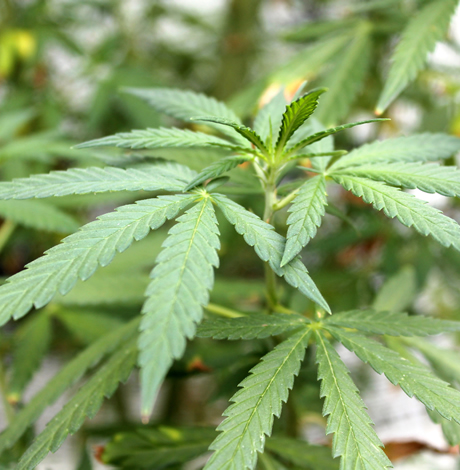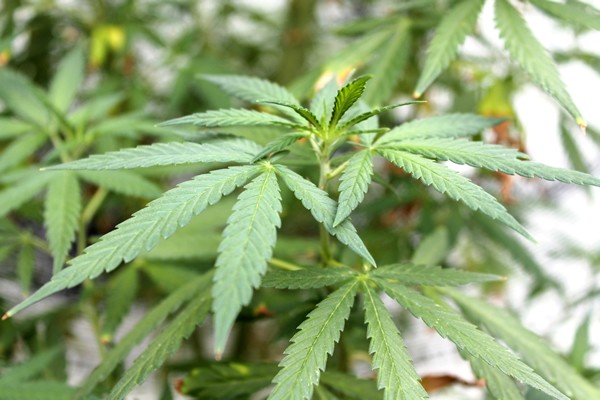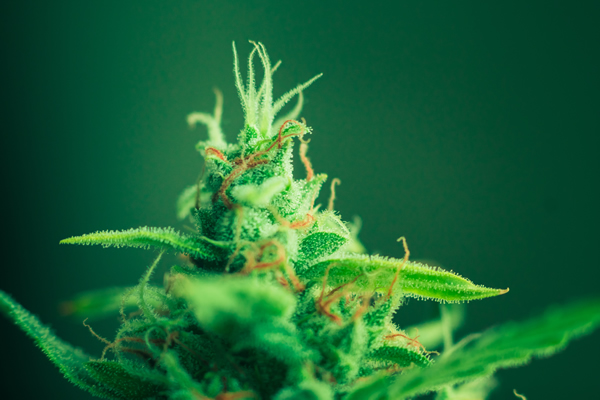Cannabis Culture
Cannabis Culture
Cannabis use not associated with psychosis in young


Cannabis use not associated with psychosis in young
LOGRONO, Spain — Adolescents’ cannabis use history is not an independent predictor of an elevated risk of psychosis, according to data published in the journal Adicciones.
Investigators affiliated with the University of La Rioja in Spain explored the relationship between psychotic-like experiences and cannabis use in a representative sample of over 1,500 Spanish adolescents.
They reported that initially identified associations between cannabis use and psychosis were no longer present once researchers controlled for confounding variables, such as socioeconomic status, alcohol use, tobacco smoking, and comorbid psychopathology.
Authors concluded, “In this study, it was found that after controlling for the effect of the multiple relevant co-variables, the use of cannabis was not related to the frequency and distress associated with psychotic experiences reported by adolescents. … These results suggest that the relationships established between psychotic-like experiences and cannabis are complex and mediated by relevant variables.”
Hawaii decriminalizes low-level possession
HONOLULU — House and Senate lawmakers last week finalized and passed legislation, House Bill 1383, decriminalizing low-level marijuana possession offenses and vacating past convictions. The legislation now awaits action from Democratic Gov. David Ige.
The measure reduces penalties involving the possession of up to three grams of marijuana from a criminal misdemeanor, punishable by up to 30 days in jail, a $1,000 fine and a criminal record, to a non-criminal violation punishable by a $130 fine.
It also provides a mechanism for the courts to grant an expungement order for those previously convicted of a marijuana possession offense involving no more than three grams.
The measure also establishes a task force to review cannabis policy and to make recommendations to the legislature by 2021.
If signed, the new law takes effect on Jan. 11, 2020.
To date, 23 states and the District of Columbia have either legalized or decriminalized (eliminated the possibility of jail time) the adult possession and personal use of marijuana.
N.D. pushes to reduce possession penalties
BISMARCK, N.D. — House and Senate lawmakers have passed legislation, House Bill 1050, reducing marijuana possession penalties. The measure now awaits action from Republican Gov. Doug Burgum.
Under the proposal, the possession of up to one-half ounce (14.175 grams) of cannabis or marijuana-related paraphernalia for a first-time offender is reclassified from a criminal misdemeanor, punishable by up to 30 days in jail, to an infraction punishable by a fine but no possibility of jail time. Those charged with subsequent infractions over the course of a calendar year may face the possibility of misdemeanor charges.
In 2016, North Dakota ranked sixth in the nation in per capita marijuana possession arrests.
Separate provisions in the measure reduce penalties for the possession of up to 500 grams of cannabis from a felony, punishable by up to five years in prison, to a class B misdemeanor. Penalties for the possession of greater amounts are amended from a felony to a Class A misdemeanor.
If signed into law, the new penalties will take effect on Aug. 1, 2019.
Iowa approves medical cannabis expansion bill
DES MOINES — House and Senate lawmakers have approved legislation, House File 732, to expand the state’s medical cannabis access program. The measure now awaits action from Republican Gov. Kim Reynolds.
Under existing law, licensed dispensaries may only provide qualified patients with plant-derived extracts possessing CBD and no more than three percent THC. House File 732 eliminates the THC cap. It also permits physician assistants and/or advanced registered nurses to make medical cannabis recommendations, and expands the pool of patients eligible for cannabis therapy to include those with “severe or chronic” pain.
The new measure imposes restrictions regarding the total amount of THC a patient may possess in a 90-day period (25 grams). However, this limit may be waived at the advice of a health practitioner.
About 1,000 Iowans are currently authorized to access low-THC cannabis oils.
Cannabis Culture news in the Blade is provided in partnership with NORML. Visit norml.org for more information.

Democratic Gov. Michelle Lujan Grisham earlier this month signed two separate measures into law amending the state’s marijuana policies. The first measure (House Bill 2) legalizes and regulates marijuana possession, production, and sales for adults. The second measure (Senate Bill 2) facilitates the automatic review and expungement of the records of those convicted of low-level marijuana offenses.
Lawmakers approved both bills during a special legislative session demanded by Gov. Lujan Grisham, who had been a vocal proponent of the reforms.
NORML State Policies Manager Carly Wolf said: “This is a day to celebrate! New Mexico will greatly benefit from this new revenue stream and the creation of thousands of jobs. Most notably though, legalization will spare thousands of otherwise law-abiding residents from arrest and a criminal record, and the state’s new expungement law will help provide relief to many who are suffering from the stigma and other collateral consequences associated with a prior marijuana conviction.”
The adult-use measure (House Bill 2) permits those ages 21 and older to legally purchase up to two ounces of marijuana and/or up to 16 grams of cannabis extract from licensed retailers. It also permits adults to home-cultivate up to six mature plants for their own personal use. Retail sales would begin by April 2022.
The expungement measure (Senate Bill 2) stipulates that those with past convictions for offenses made legal under this act are eligible for automatic expungement of their records. Those currently incarcerated for such offenses are eligible for a dismissal of their sentence. It’s estimated that over 150,000 New Mexico residents are eligible for automatic expungement under this measure, according to the Department of Public Safety.
Cannabis Culture news in the Blade is provided in partnership with NORML. Visit norml.org for more information.
Cannabis Culture
Delaware cannabis activists take on corporate marijuana
Criticism from medical marijuana operators claimed that HB150 offers too many cultivation and retail licenses

As the country moves forward with sweeping changes in cannabis policy reform, locals in Delaware are tangling with corporate, multi-state medical marijuana permit holders to pass a bill for full legalization.
Adult-use activists and registered medical patients were stunned to hear opposing testimony from Delaware’s medical marijuana operators. Patients already deal with limited access and costly products. Now, many see the established industry voicing opposition as simply obstructing the progress of adult-use legislation. In response, some patients are now staging a boycott of the regulated dispensaries.
During the first committee hearing for HB150, Delaware’s adult-use bill, four of the state’s six currently licensed, multi-million dollar medical cannabis facilities offered negative testimony.
Zoë Patchell, executive director of Delaware CAN responded: “This market belongs to the long-time consumers, patients, and activists. We create the demand, we’ve been the ones driving the reform efforts, and we pay the prices at dispensaries. Cannabis is more than a market – cannabis is a community. These companies cannot reasonably fathom that we are going to purchase cannabis from any entity that has proven to put profits over patients. And now they seem willing to put consumers’ lives and freedom at risk just to hold out for an unfair advantage in the industry.”
These included publicly traded Columbia Care, “Fresh Delaware” aka CCRI, CannTech Research Inc., and the owner of EZY Venture aka “The Farm.”
They all went on record condemning HB150, and pushing a false narrative about oversupply. The core demand from the permit cartel was some protection for their private business interests with guaranteed adult-use licenses.
Criticism from the medical marijuana operators claimed that HB150 offers too many new cultivation and retail licenses, underlined by deep yet unfounded fears that the new competition would put their companies out of business.
Patchell noted, “We are not going to sit back while multi-state corporate entities, that already monopolize East Coast medical markets, work to undermine our social equity and micro-license provisions.”
Cannabis Culture news in the Blade is provided in partnership with NORML. Visit norml.org for more information.
Cannabis Culture
Virginia marijuana legalization takes effect July 1
Adult possession of cannabis up to one ounce without penalty

Following legislative approval of Democratic Gov. Ralph Northam’s amendments to Senate Bill 1406 and House Bill 2312, Virginia became the first southern state to legalize the possession and use of marijuana by adults.
Senate Bill 1406, introduced by Sen. Adam Ebbin (D-30) and Senate President Pro Tempore Senator Louise Lucas (D-18), and House Bill 2312, patroned by House Majority Leader Delegate Charniele Herring (D-46), establish a statutory timeline for the legalization of the commercial marijuana market in Virginia. The measure also permits for the personal possession and cultivation of cannabis by those ages 21 or older.
Last week, Gov. Northam recommended changes to the legislation to permit the personal use provisions of the law to take effect on July 1, 2021 rather than on January 1, 2024, the enactment date initially approved by lawmakers. A majority of the legislature concurred with that change.
Therefore, beginning July 1, 2021, adults will be permitted to possess up to one ounce of marijuana and to cultivate up to four cannabis plants per household without penalty.
The timeline by which state regulators have to enact provisions licensing commercial cannabis production and sales remains July 1, 2024.
Commenting on final passage, NORML Development Director Jenn Michelle Pedini, who also serves as executive director of Virginia NORML, said: “This is an incredible victory for Virginia. Legalization will bring an end to the thousands of low-level marijuana infractions occurring annually in the Commonwealth — ending a discriminatory practice that far too often targets Virginians who are young, poor, and people of color.”
Majority Leader Charniele Herring added: “It is a huge day for equity in the Commonwealth. Virginia is now the first state in the South to legalize recreational marijuana use, and I am so proud to have been able to carry this monumental legislation.”
Sen. Ebbin said, “The passage of SB1406 caps off years of struggle to reform our broken and outdated marijuana laws and begins the deliberate steps to repeal the harms of the failed prohibition. I am thankful to NORML, the governor, and my colleagues for moving this 283 bill from inception to passage over the last four months, and look forward to continuing to partner with them to establish a regulated, equity focused, adult-use marketplace in the coming years.”
Newly released statewide polling data finds that 68 percent of registered voters in Virginia, including majorities of Democrats and Republicans, support legalizing marijuana for adults.
Additional amendments added by Gov. Northam will allow the sealing of records related to crimes involving the misdemeanor possession of marijuana with the intent to distribute. Those records will begin to be sealed starting on July 1, 2021. Separate legislation enacted in 2020 previously sealed records related to misdemeanor marijuana possession.
Records specific to the simple possession of marijuana and/or misdemeanor possession with intent to distribute records will be automatically expunged no later than 2025. Those with records specific to crimes involving the felony possession of marijuana with the intent to distribute may begin to petition the courts for an expounging of their records in 2025.
The bill also allows for the re-sentencing of individuals currently incarcerated for marijuana-related offenses. The measure permits those individuals to have a hearing before the court that originally sentenced them, with legal counsel provided for indigent individuals. However, this portion of the bill must be reenacted in 2022.
The legislation also establishes an independent agency, the Virginia Cannabis Control Authority, to oversee the establishment of regulations that will govern the adult-use market. This agency is set to convene this summer. The remainder of the 300-page bill, which details the regulatory and market structure and social equity provisions, is subject to a second review and vote by the Assembly next year.
Cannabis Culture news in the Blade is provided in partnership with NORML. Visit norml.org for more information.
-

 Virginia2 days ago
Virginia2 days agoDefying trends, new LGBTQ center opens in rural Winchester, Va.
-

 South Africa5 days ago
South Africa5 days agoLesbian feminist becomes South African MP
-

 Travel4 days ago
Travel4 days agoManchester is vibrant tapestry of culture, history, and Pride
-

 Opinions3 days ago
Opinions3 days agoUSAID’s demise: America’s global betrayal of trust with LGBTQ people











